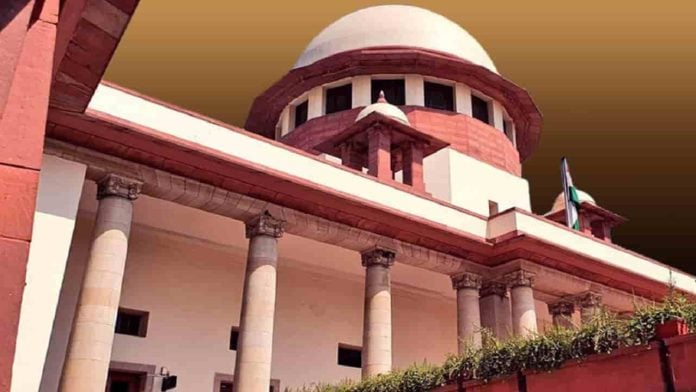The Supreme Court on Friday refused to issue notices on a batch of petitions challenging the Madras High Court order, which granted permission to the Rashtriya Swayamsevak Sangh (RSS) to conduct route marches in all requested locations across Tamil Nadu.
The Bench of Justice Surya Kant and Justice Dipankar Datta, while hearing the Special Leave Petitions (SLPs) filed by the Tamil Nadu government and the State Director General of Police (DGP), sought to know from the petitioners whether an intra-court appeal was available in the High Court or not.
The Apex Court observed that if a single judge had committed an error, there was a forum available in the High Court itself. Was it not possible for the Division Bench to correct the error of the Single Bench, it asked.
While adjourning the matters to November 6 at the request of the State of Tamil Nadu to produce documents to show that the SLPs were maintainable, the top court of the country observed after the hearing that it would ask some uncomfortable questions on the merits of the matter to the Tamil Nadu government if it found that the SLPs were maintainable.
Representing the State of Tamil Nadu, Senior Advocate Kapil Sibal submitted at the outset that the High Court was now ‘deciding’ whether or not to ‘allow’ people to hold processions. He alleged that it was entirely malafide, adding that the respondents had filed for contempt and the petitioners were in difficulty.
Regarding an intra-court appeal, the Senior Advocate contended that the contempt should not be decided till an intra-court appeal was filed.
The Apex Court told them to raise the issue before the Division Bench.
The Counsel appearing for the State of Tamil Nadu contended that when a public order was involved, it was a criminal matter, there was no intra-court appeal.
The Bench said that it would go by the roster. It asked whether the matter was heard by a Judge hearing criminal matters. If it was heard as a criminal writ, the appeal will not lie. But if it was heard as a civil writ, an appeal will lie, noted the Apex Court.
Asking whether the Judge had the authority to deal with Writs on the criminal side, the Bench observed that the writ was not under Section 482 of CrPC, but under Section 226.
The Tamil Nadu government then sought time till Monday to produce the orders. Sibal said if the appeal did not lie, the petitioner will be in great difficulty.
The Respondents before the Apex Court, who were the Writ Petitioners before the High Court, were represented by Senior Advocate Guru Krishnakumar and Senior Advocate Madhvi Divan.


